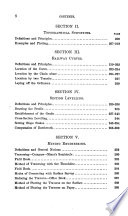 | Charles Davies - Leveling - 1871 - 448 pages
...both members of (4), we have, 1CT = ym; whence, by the definition, I = log j/^. ...... (9.) That is, the logarithm of any root of a number, is equal to the logarithm of the number divided by the index of the root. The preceding principles enable ns to abbreviate... | |
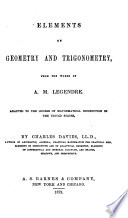 | Charles Davies - Geometry - 1872 - 464 pages
...of both members of ( 4 ), we have, • «d' = \/m ; whence, by the definition, ~ .... (9.) That is, the logarithm of any root of a number is equal to the logarithm of the number divided by the index of the root. TABLE OB LOGARITHMS. 9. A TABLE OF LOGARITHMS,... | |
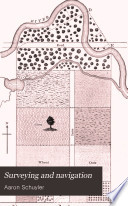 | Aaron Schuyler - Navigation - 1873 - 536 pages
...Ans. 525.55. 5. Find the fifth power of .9. .Ans. .59049. EVOLUTION BY LOGARITHMS. 25. Proposition. The logarithm of any root of a number is equal to the logarithm of the number divided by the index of the root. Let (1) b• = n; then, by def., log n =... | |
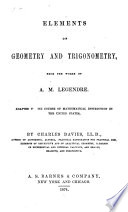 | Adrien Marie Legendre - Geometry - 1874 - 500 pages
...members of (4), we have, 10r = whence, by the definition, * = log 'Jm. ' • • • ( 9.) That is, the logarithm of any root of a number is equal to the logarithm of the number divided by the index of the root. The preceding principles enable us to abbreviate... | |
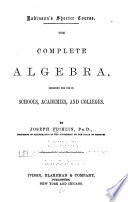 | Joseph Ficklin - Algebra - 1874 - 446 pages
...both members of the equation m = a* to the rtA power, mr = атх ; loga(mr) = rx = r logam. 563. Tlie logarithm of any root of a number is equal to the quotient obtained by dividing the logarithm of the number by the index of the root. Extracting the гл root... | |
 | Horatio Nelson Robinson - Algebra - 1875 - 430 pages
...power. For, let m=cf; then z = log. m. By involution, m' = a" ; therefore, log. (mr) =rx = r log. m. 6. The logarithm of any root of a number is equal to the logarithm of the number divided by the index of the root. For, let m = a' ; then x — log. m. •... | |
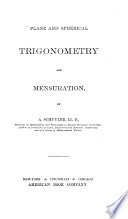 | Aaron Schuyler - Measurement - 1875 - 284 pages
...Ans. 525.55. 5. Find the fifth power of .9. Am. .59047. I EVOLUTION BY LOGARITHMS. f 25. Proposition. The logarithm of any root of a number is equal to the logarithm of the number divided by the index of the root. Let (1) b' = n; then, by def., log n = x.... | |
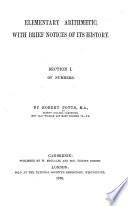 | Robert Potts - Arithmetic - 1876 - 392 pages
...the logarithm of any root of a number. Here M = я1c8«« by def. And log. {и*} = ,flog„«. Or, the logarithm of any root of a number, is equal to the quotient arising from dividing the logarithm of the number by the index of the root. Hence it appears that if a table of... | |
 | Robert Potts - Arithmetic - 1876 - 389 pages
...the logarithm of any root of a numi er. Here u = d°s* u by def. Andlog a {V 7l } = »jloga«. Or, the logarithm of any root of a number, is equal to the quotient arising from dividing the logarithm of the number by the index of the root. Hence it appears that if a table of... | |
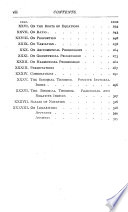 | James Hamblin Smith - Algebra - 1877 - 418 pages
...logarithm of 28561, the number required. 458. The logarithm of any root of a number is equal to (he quotient arising from the division of the logarithm...of the number by the number denoting the root. Let m=a*. i * Then ' ro'=ar; =-.log„m. Thus the operation of Evolution is changed into Division. If,... | |
| |